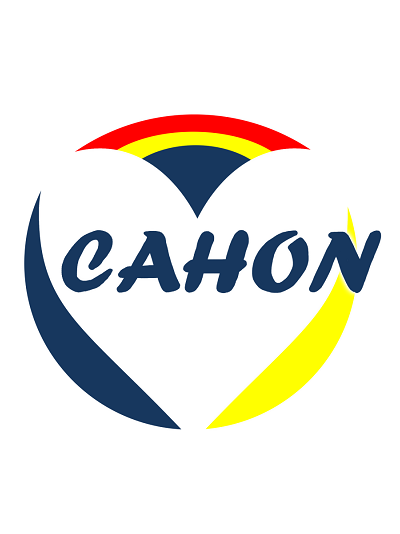A phase II trial of anlotinib plus EGFR-TKIs in advanced non-small cell lung cancer with gradual, oligo, or potential progression after EGFR-TKIs treatment (CTONG-1803/ALTER-L001)
IF 40.4
1区 医学
Q1 HEMATOLOGY
引用次数: 0
Abstract
The study is to evaluate the efficacy and safety of combined anlotinib and EGFR-tyrosine kinase inhibitors (TKIs) in patients with advanced non-small cell lung cancer (NSCLC) who had gradual, oligo, or potential progression after previous EGFR-TKIs treatment. We conducted an open-label, single-arm, multicenter, phase II trial in China. Eligible patients were 18–75 years old with histologically or cytologically confirmed NSCLC who were EGFR mutation positive and showed gradual, oligo, or potential progression after EGFR-TKIs. Anlotinib (12 mg/day) was administered orally for 2 weeks and then off 1 week in a 3-week cycle. EGFR-TKIs were continue used. The primary endpoint was progression-free survival (PFS). The secondary endpoints included 6- and 12-month PFS rate, objective response rate (ORR), disease control rate (DCR), overall survival (OS) and safety. From July 2019 to December 2022, 120 patients were enrolled. The median PFS (mPFS) was 9.1 months (95% CI 6.8–11.7). The PFS rates at 6 and 12 months was 68.5% and 38.8% respectively. For 86 patients with first-line 1st /2nd generation EGFR-TKIs, the mPFS was 9.2 months (95% CI 6.7–12.6). For 32 patients with first-line 3rd generation EGFR-TKIs, the mPFS was 10.3 months (95% CI 6.1–13.3). Overall ORR and DCR were 6.7% (95% CI 2.9–12.7) and 87.5% (95% CI 80.2–92.8), respectively. 52.5% of patients had grade 3 or higher treatment-emergent adverse events (TEAEs). Anlotinib in combination with continuation of EGFR-TKIs prolonged the clinical benefit of EGFR-TKIs, demonstrating favorable survival outcomes and manageable toxicity in NSCLC treated with EGFR-TKIs and had specific progression modes, such as gradual progression. NCT04007835.一项anlotinib联合EGFR-TKIs治疗晚期非小细胞肺癌的II期试验,EGFR-TKIs治疗后进展缓慢、少或潜在
该研究旨在评估anlotinib联合egfr -酪氨酸激酶抑制剂(TKIs)治疗晚期非小细胞肺癌(NSCLC)患者的有效性和安全性,这些患者在先前的EGFR-TKIs治疗后出现逐渐、寡或潜在的进展。我们在中国进行了一项开放标签、单臂、多中心、II期试验。符合条件的患者年龄为18-75岁,组织学或细胞学证实为非小细胞肺癌,EGFR突变阳性,EGFR- tkis后呈逐渐、少量或潜在进展。Anlotinib (12mg /天)口服2周,然后在3周周期中停用1周。继续使用EGFR-TKIs。主要终点为无进展生存期(PFS)。次要终点包括6个月和12个月的PFS率、客观缓解率(ORR)、疾病控制率(DCR)、总生存期(OS)和安全性。从2019年7月到2022年12月,120名患者入组。中位PFS (mPFS)为9.1个月(95% CI 6.8-11.7)。6个月和12个月的PFS分别为68.5%和38.8%。86例一线1 /2代EGFR-TKIs患者的mPFS为9.2个月(95% CI 6.7-12.6)。32例一线第3代EGFR-TKIs患者的mPFS为10.3个月(95% CI 6.1-13.3)。总体ORR和DCR分别为6.7% (95% CI 2.9-12.7)和87.5% (95% CI 80.2-92.8)。52.5%的患者有3级或更高级别的治疗不良事件(teae)。Anlotinib联合继续使用EGFR-TKIs延长了EGFR-TKIs的临床获益,在使用EGFR-TKIs治疗的NSCLC中显示出良好的生存结果和可控的毒性,并且具有特定的进展模式,如渐进进展。NCT04007835。
本文章由计算机程序翻译,如有差异,请以英文原文为准。
求助全文
约1分钟内获得全文
求助全文
来源期刊
CiteScore
48.10
自引率
2.10%
发文量
169
审稿时长
6-12 weeks
期刊介绍:
The Journal of Hematology & Oncology, an open-access journal, publishes high-quality research covering all aspects of hematology and oncology, including reviews and research highlights on "hot topics" by leading experts.
Given the close relationship and rapid evolution of hematology and oncology, the journal aims to meet the demand for a dedicated platform for publishing discoveries from both fields. It serves as an international platform for sharing laboratory and clinical findings among laboratory scientists, physician scientists, hematologists, and oncologists in an open-access format. With a rapid turnaround time from submission to publication, the journal facilitates real-time sharing of knowledge and new successes.

 求助内容:
求助内容: 应助结果提醒方式:
应助结果提醒方式:


